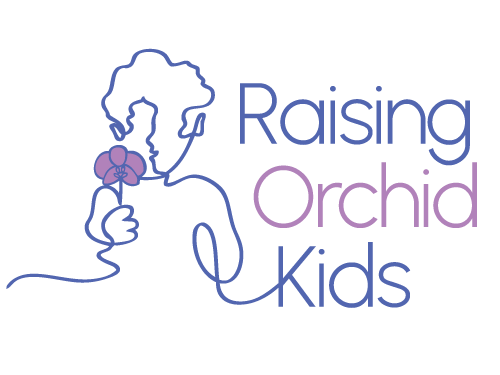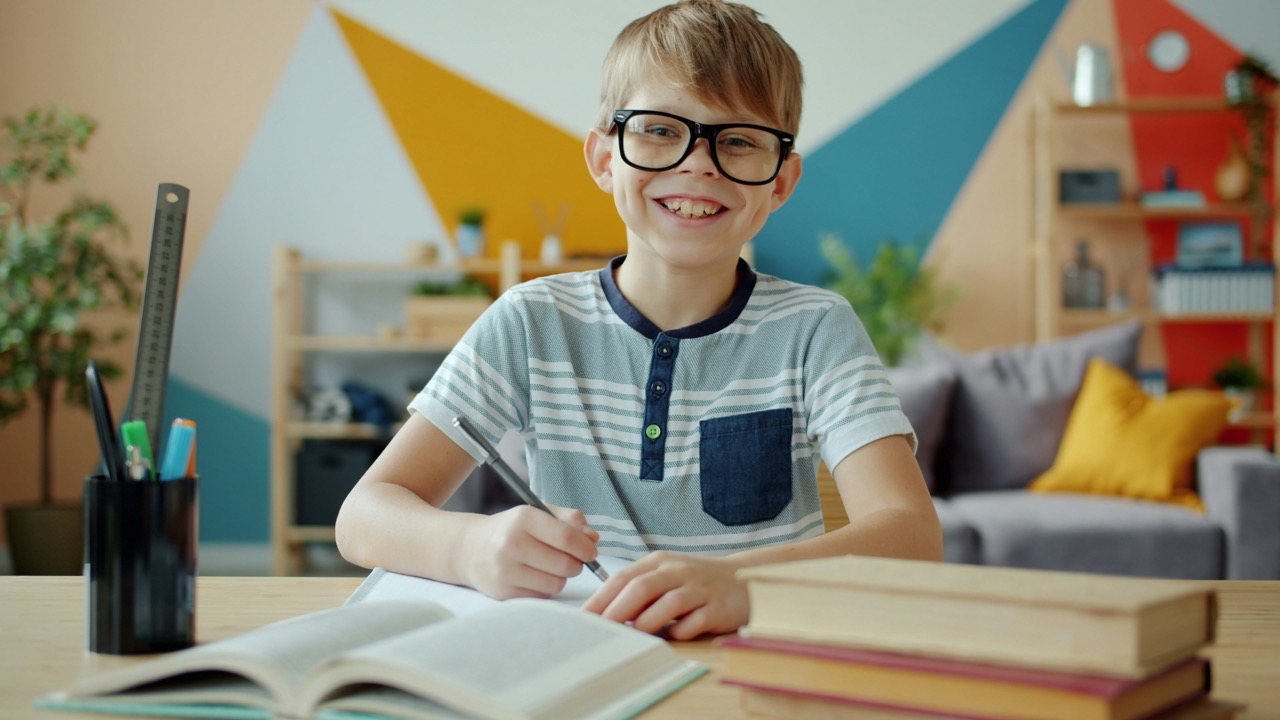Our coach Jen shares a story about how one school’s accommodation let her neurodivergent son adapt successfully to a new environment. Read more to learn why “he just needs to learn how to deal with it” doesn’t usually work for Orchid kids.
Why accommodation was needed
When my AuDHD (autistic + ADHD) son started at his new school in 5th grade, the transition triggered a lot of Big Feelings. While he was happy to be in a new school, since his prior school was not a good fit for him (more on that in a subsequent post!), there was a lot of new to navigate. New building, new adults, new routines, new everything. All of this newness put his neurodivergent (aka “Orchid”) brain on high alert, ever vigilant for signs of “danger.”
To counteract the perception of danger, human brains seek safety. They are, essentially, creating their own kind of accommodation. For Orchid kids, “danger” can lurk in the most unsuspecting places, like the wrong colored cup, or a last minute change in schedule, or a song they hate being played in their midst. For my son, danger lurked in the need to change desks when he transitioned to different classrooms for different subjects at school. For him, that rectangle of laminate and metal wasn’t just furniture; it was his home base. And home bases feel safe, especially when everything else around you feels unpredictable.
If you know about Orchid kids and how they manage change, you can probably predict what came next. The idea of leaving his desk, his safe harbor in the rocky seas of the school day in a new school, was a nonstarter. Cue the negotiations, the resistance, the anxiety. The yelling. Lots of yelling. The total meltdown. While some people might choose to interpret all that yelling over a desk as defiance, it was not. It was about his sense of safety.
How accommodation worked
Now, here’s where the accommodation “magic” happened. Because it’s an autism-focused school staffed by educators who understand autistic brains so well, they didn’t say, “He JUST needs to learn to move classes without it.” Instead, they said, “No problem. We’ll move the desk with him.”
Yes, literally. When he switched classes, a staff member carried his desk to the next room. His desk came with him, like a soothing, calming, safe teddy bear. Now, I know many teachers and parents would balk at that. Isn’t that over-accommodation? Isn’t this reinforcing the “wrong” thing? How is he ever going to learn to move classes like he should? Shouldn’t he learn to be flexible?
Stay with me here.
For a month, he traveled with his desk. And then—quietly and predictably—he stopped needing it. One day his teacher asked if he thought he might be okay in the other room at a different desk, and he said, “I think so.” It turned out to be totally fine for him. By literally the next day, his desk stayed put and he moved on, able to learn, laugh and feel safe. The scaffolding came down because the structure underneath had time to set and his brain had time to acclimate to the new.
Some people might have said, “He needs to learn to be more flexible. He should not have had to require his desk to move with him.”
But guess what—he did learn to be more flexible. Just within his own time frame, which is what that brilliant school understood. Accommodation helped him get there.
Rather than forcing it, they made it possible by prioritizing his perception of safety first.
Accomodation as a bridge, not a crutch
This is the part we miss when we talk about “teaching flexibility” like it’s a moral lesson. Flexibility isn’t taught through lectures or by pushing an Orchid kid to “just deal with” a level of discomfort that feels overwhelming for their brain. Our Orchid kids can better manage discomfort when their brains feel anchored and safe.
When a (Orchid and non-Orchid alike) child’s nervous system feels secure, accommodation can help them try something new, as long as that something new does not feel like an impossible leap for them. When our Orchids brace themselves for loss, whether it’s about place, predictability, or control, they cling to what feels safe and secure. That’s not stubbornness. It’s biology.
The moving desk wasn’t a crutch. It was a bridge.
Bridges generally do two things: they connect where you are to where you’re going, and they make the journey safe enough that you’ll actually take it. Without the bridge, many kids will opt out, or they’ll white-knuckle it and melt down later, which is not “success.” It’s costly compliance. And most Orchids are not the “compliant” type. With the bridge, they cross under their own power and can feel a sense of autonomy in a world that places a LOT of demands upon them.
What the school got right about accommodation
This example of what his school did always stands out to me as a perfect emblem of how to help Orchids find their way in the world and find the inroads to thrive.
Here’s what these insightful educators did right:
- They honored the why behind the behavior.
The “cling to the desk” behavior wasn’t random. The desk signaled “this is my safe harbor in a sea of unpredictable newness.” They treated the need (safety, predictability) instead of policing the symptom, and in so doing validated him and conveyed that they saw him and honored what he needed in that moment. - They built a reversible, low-cost accommodation.
While carrying a desk between classes isn’t the easiest thing ever, it only took an extra minute or two and didn’t disrupt learning in any meaningful way. It was a big win for minimal effort. - They planned a gentle fade using evidence.
They watched my son’s cues and let his nervous system lead. When he was ready, the desk stayed and they quietly celebrated with him without making a big deal about it. The key was that they asked him and let him be the one who decided that he was ready. - They kept dignity front and center.
My son wasn’t shamed for needing support. That validation alone accelerates growth. It also conveyed to his classmates that it’s okay to need something different from your classmates. And, it’s okay to advocate for what you need to feel regulated.
Parents and educators sometimes worry that providing accommodations will thwart a child’s ability to learn flexibility. But accommodations are not the enemy of growth; for Orchid kids, they’re the conditions needed for growth.
It’s sort of like learning to ride a bike. You don’t learn to ride a bike by starting on a steep hill with no training wheels and hoping grit will save you. You learn to balance on the two wheels by getting used to the sensation of riding and learning how to pedal, while being supported by training wheels, or on a balance bike where you can easily put your feet on the ground for stability. Then, after lots of practice, you feel more steady, and can try the 2-wheel challenge. Not because someone forced it on you and pushed you down the hill. Because you practiced, built confidence and competence, and were ready.
That’s what happened with the desk.
Tips for helping your neurodivergent child
If you’re navigating something similar with your Orchid, whether it’s a transition that feels hard, or anything that feels to you like they “should” be able to [insert idea], here are a few suggestions:
- Name the why for them.
“This desk helps you feel safe when we have a class in a different room.” Many Orchid kids do much better when they can understand and articulate the why. This also helps build their “metacognition,” understanding their own brain and how it likes to be and move through the world. - Make it easy.
Choose accommodations that are simple, easy and straightforward to execute. Complexity can make executing and fading the support unduly challenging. - Watch for readiness.
Avoid setting a deadline. Instead, set times to check in, observe and notice what might have shifted. If you look closely, you’ll see signs: hesitation softens, curiosity shows up, and requests for those supports start to slow down. - Celebrate with discernment
Celebrate the trying of new things, rather than the shedding of support. The win isn’t getting rid of the support; it’s the ability to find the right pace and path forward to meet a goal. These are great learning experiences to come back to remind our Orchids of how they were able to do something hard by finding the “Just Right Challenge” to move forward.
Be flexible and get rid of the “shoulds”
The best part of our desk story isn’t that it ended. It’s that my son wrote the ending himself. He learned that classrooms can feel safe even if his designated safe space doesn’t move with him. He learned that his needs matter and that adults will meet him where he is. Those are meaningful lessons that he will be able to generalize and take forward with him.
So when you find that internal tug-of-war between your child resisting something and your brain thinking, “She should be able to do that already. Accommodating won’t teach her how to handle it on her own,” remember Max’s desk story! Work to find the bridge, and the appropriate speed to move across it, to safely provide your child with the secure path from where they are to where they can go.
Let us know how this landed for you: thoughts, comments, questions?
For more help with navigating these challenges, consider joining our next Core Course or Parenting Teens Support Group.
Photo by Vitaly Gariev on Unsplash


What a beautiful illustration of what a dose of flexibility and empathy can grow: safety, recognition and success. It is SO possible and so important. Thanks for sharing, Jen.